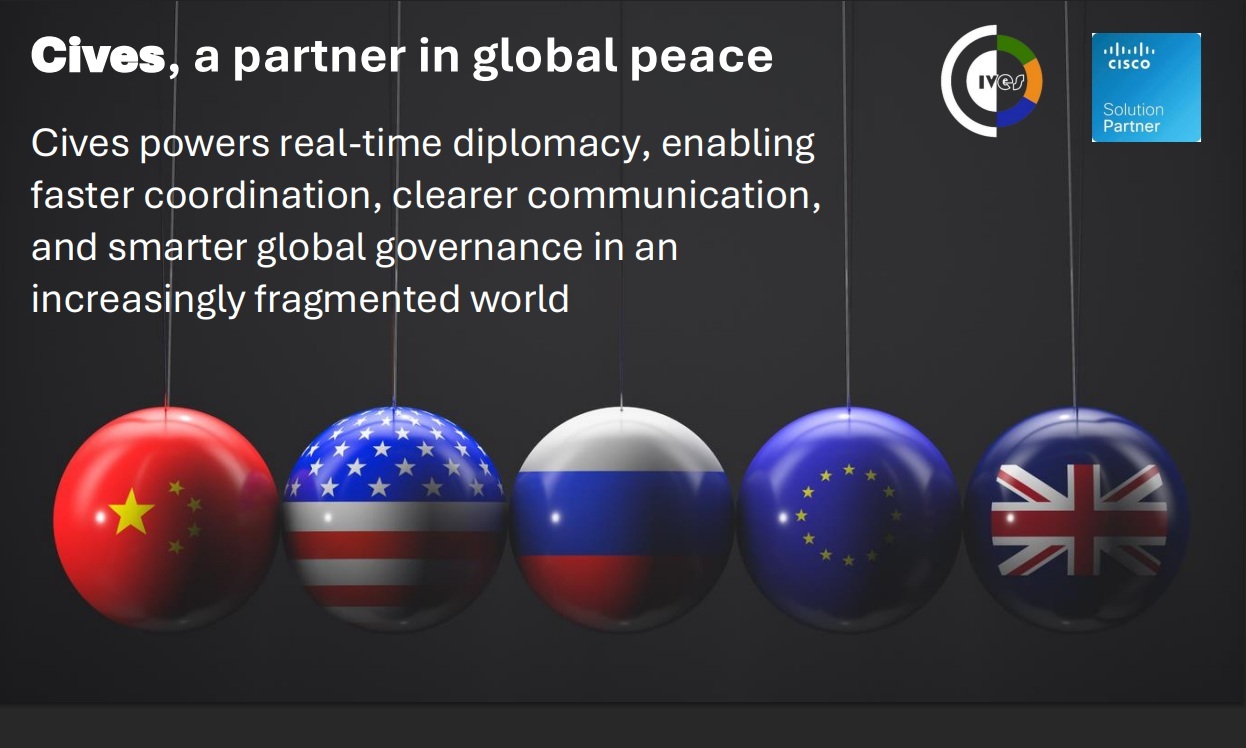Honoring Independence by Redefining Civic Engagement: A Reflection from Cives
Every year on July 4th, the United States celebrates its Independence Day—a moment to reflect on the country’s founding ideals: freedom, democracy,...
2 min read
Brian McGlynn : May 27, 2025 4:23:41 PM

In an era marked by intensifying geopolitical tensions, commercial rivalries, civil unrest, misinformation campaigns, and increasingly complex transnational challenges the international landscape has grown more fragmented and unpredictable. Governments and diplomatic institutions face unprecedented challenges in maintaining stability, managing alliances, and responding to crises across borders. In this context, emerging technologies like Cives are not just useful—they are essential offering a transformative advantage.
Cives stands at the intersection of AI, international collaboration, and digital governance. By enabling real-time communication, improving cross-border coordination, and supporting agile responses to global challenges, Cives is redefining how diplomacy is conducted in the 21st century and it is a critical asset for modern states seeking to uphold stability, protect strategic interests, and lead in global cooperation.
1. Real-Time Communication Across Languages and Cultures
Diplomacy hinges on timely and accurate communication. Yet, language barriers, time zone differences, and bureaucratic delays often hinder effective dialogue between nations. Cives leverages advanced natural language processing to provide instant translation and contextual understanding, enabling diplomats, policy advisors, and international organizations to communicate seamlessly and with greater nuance.
This real-time capability is not just a convenience—it’s a lifeline during rapidly unfolding situations like armed conflicts, humanitarian crises, or sudden shifts in trade policy. With Cives, dialogue no longer waits for translation; it flows continuously, minimizing misinterpretations and fostering trust.
Government agencies can rely on Cives to facilitate bilateral or multilateral talks instantly, whether during high-stakes conflict resolution or collaborative trade discussions
2. Cross-Border Coordination Made Effortless
Coordinating international responses to global challenges—be it trade war, climate change, cybersecurity threats, or pandemic outbreaks—requires efficient, interoperable platforms that transcend national systems. Cives offers secure, AI-augmented infrastructure that streamlines collaboration between diverse governmental and non-governmental stakeholders.
Through shared dashboards, live data analysis, and AI-powered scenario modeling, Cives enables faster consensus-building, more strategic decision-making, and greater accountability across borders. It turns fragmented, siloed interactions into coordinated efforts built on shared intelligence and real-time situational awareness.
3. Promoting Transparent and Informed Governance for Agile Response to Global Crises
The speed and complexity of global crises demand more than traditional diplomatic channels can provide. In a time when misinformation and opaque decision-making erode public trust, Cives introduces a new standard for transparency and accountability in diplomacy. By making deliberative processes more data-driven and auditable, it helps ensure that international agreements are built on evidence and consensus, not coercion or confusion.
Moreover, Cives empowers civil society and independent observers by offering access to validated information, thereby promoting an inclusive diplomatic ecosystem that serves both state and non-state actors. Involging multiple actors Cives provide policymakers with a comprehensive, exhaustive, and up-to-the-minute picture. This ability equips decision-makers to respond more effectively and ethically—from preempting humanitarian disasters to de-escalating trade conflicts before they spiral.
For national security councils, foreign ministries, and intergovernmental liaison offices, this means faster, more informed interventions and a clear operational picture in moments of uncertainty.
4. Resilience in the Face of Commercial and Civil Conflict
Trade wars and civil conflicts not only disrupt economies—they fracture international relationships. Cives serves as a stabilizing force, helping stakeholders navigate disputes with clarity, empathy, and strategic foresight. Whether it’s mediating resource-sharing agreements or analyzing the socio-economic impact of sanctions, the platform enhances diplomatic resilience and keeps communication channels open even in adversarial contexts for identifying paths toward de-escalation and resolution.
Conclusion: Diplomacy Needs a Digital Backbone
In today's interconnected but polarized world, diplomacy must evolve. Cives provides that evolution—a digital backbone for global governance that is transparent, responsive, and adaptive.
As nations grapple with increasingly complex global challenges, platforms like Cives will be the difference between fragmented chaos and coordinated action. It’s not just about making diplomacy smarter—it’s about making it work in a world that can no longer afford breakdowns in communication or collaboration.
Cives offers government stakeholders a strategic capability upgrade—a platform to strengthen diplomacy, respond more decisively to crises, and lead the way in cooperative governance.
As global dynamics continue to evolve, Cives ensures that statecraft remains resilient, informed, and effective
Cives isn’t just a tool for diplomats. It’s a partner in global peace!

Every year on July 4th, the United States celebrates its Independence Day—a moment to reflect on the country’s founding ideals: freedom, democracy,...

Powering a More Inclusive, Sustainable, and Democratic Future Through Hybrid Collaboration
As the Chief Product Officer of CIVES.AI, I’m thrilled to share that our team is heading to Cisco Live in Amsterdam! This is an event that holds a...